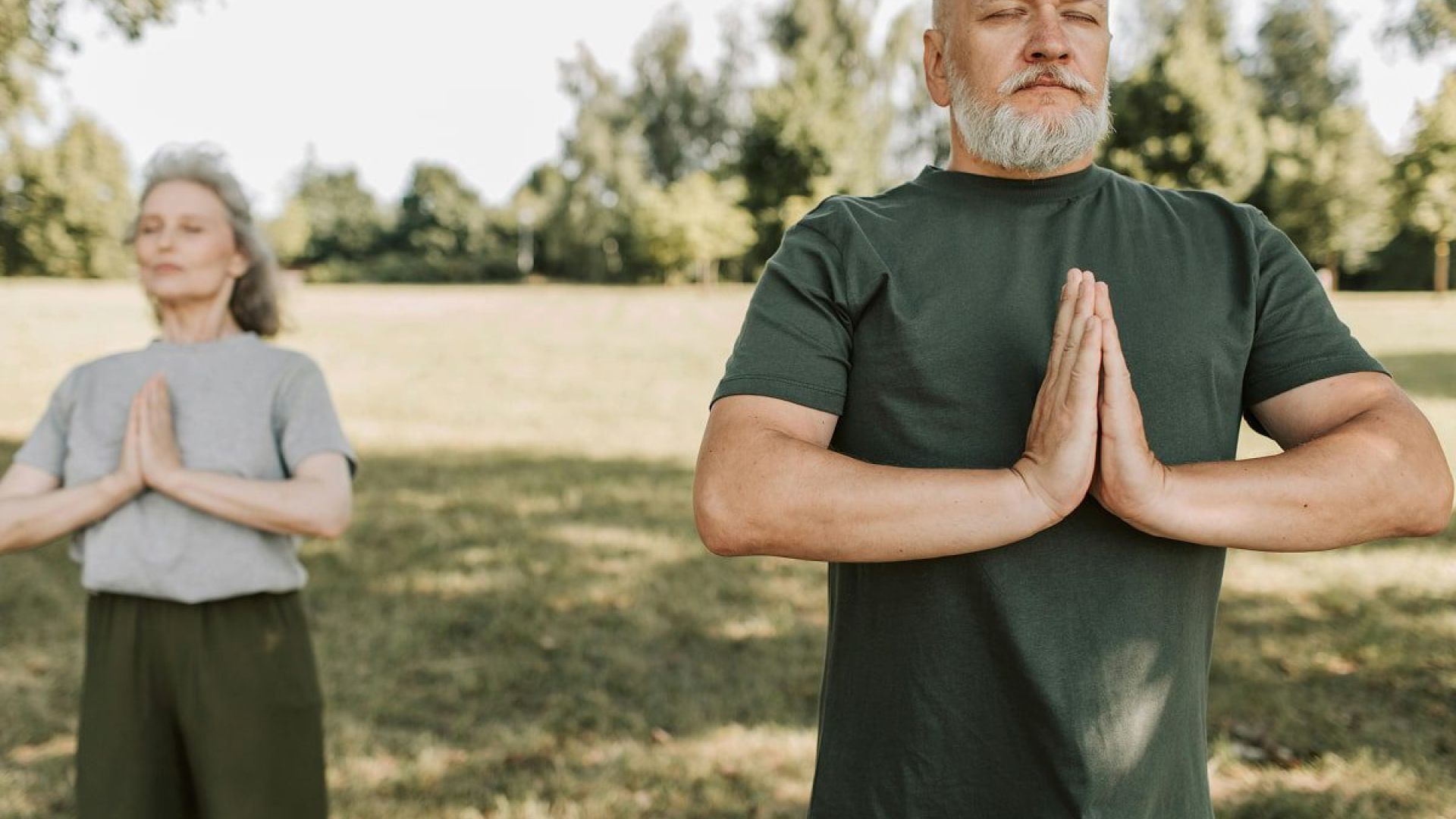Lifestyle Interventions for a Longer, Healthier Life [Complete Guide]

Aging is inevitable, but how you age is in your hands. Research shows that lifestyle choices can significantly impact your lifespan and, more importantly, your healthspan—the number of years you live in good health.
This guide will walk you through the most effective lifestyle interventions, backed by science, that can help you not just live longer but stay strong, sharp, and active well into old age.

The Power of Nutrition: Eating for Longevity
What you eat plays a massive role in how well you age. Food isn’t just fuel—it’s information for your cells. The right diet can reduce inflammation, improve metabolic health, and even slow down aging at a genetic level.
But with so many diets out there, what actually works for longevity?
The Best Longevity-Boosting Foods
Science points to a whole-food, nutrient-dense diet as the foundation of a long and healthy life. Here’s what should be on your plate:
- Antioxidant-rich foods – Berries, dark chocolate, and leafy greens help fight oxidative stress, which accelerates aging.
- Healthy fats – Avocados, nuts, and olive oil support brain health, reduce inflammation, and promote cellular function.
- Omega-3s – Fatty fish like salmon and sardines protect against heart disease and cognitive decline.
- High-quality protein – Grass-fed meat, eggs, and legumes maintain muscle mass, which is key for longevity.
- Polyphenol-rich foods – Green tea, dark chocolate, and coffee provide compounds that promote cellular repair.
- Fiber-packed vegetables – Crucial for gut health, which is linked to immune function and longevity.
Foods to Avoid for a Longer, Healthier Life
Some foods actively accelerate aging and increase your risk of chronic disease:
- Ultra-processed foods – Highly refined foods full of additives, seed oils, and artificial ingredients contribute to inflammation and metabolic dysfunction.
- Refined sugars & excessive carbs – Spikes in blood sugar lead to insulin resistance, weight gain, and faster aging.
- Processed meats – Bacon, sausages, and hot dogs are linked to increased cancer risk and inflammation.
- Trans fats & seed oils – Found in margarine, fast food, and processed snacks, these damage cells and accelerate aging.
Longevity Diet in Action
The Mediterranean and Blue Zone diets, both rich in whole foods, healthy fats, and plant-based nutrients, are consistently linked to longer lifespans. But you don’t need a “perfect” diet—just focus on whole, unprocessed foods as much as possible.
- Action Step: Start by adding one longevity-boosting food and cutting out one aging-accelerating food from your daily meals. Small changes add up!

Exercise and Movement: Why Staying Active is Non-Negotiable
Movement is one of the most powerful anti-aging tools. Studies show that regular physical activity can add years to your life while keeping your body and brain functioning optimally.
Why Exercise is a Longevity Superpower
- Protects against chronic disease – Reduces risk of heart disease, diabetes, and Alzheimer’s.
- Preserves muscle mass – Muscle is a key predictor of longevity—more muscle means a lower risk of early death.
- Boosts brain health – Exercise increases brain-derived neurotrophic factor (BDNF), which helps prevent cognitive decline.
- Enhances metabolic health – Reduces insulin resistance and improves fat metabolism.
Strength Training vs. Cardio for Longevity
Both are important, but they serve different roles in healthy aging:
Strength Training (2–3x per week)
- Prevents sarcopenia (muscle loss), which is critical for long-term mobility.
- Strengthens bones and reduces the risk of osteoporosis.
- Boosts metabolism and insulin sensitivity.
Cardio (3–5x per week)
- Improves heart and lung function.
- Enhances mitochondrial health (your cell’s energy factories).
- Reduces inflammation and supports mental health.
Best Approach?
A combination of both – resistance training + aerobic exercise gives the best results for longevity.
Daily Movement is Just as Important as Gym Workouts
Even if you hit the gym, sitting all day is still harmful. People in long-living cultures (like the Blue Zones) don’t “work out” as much as they stay naturally active all day.
Easy Ways to Move More Daily:
- Take the stairs instead of the elevator.
- Walk 10,000+ steps daily (break it up into smaller walks).
- Stretch and move every hour if you work at a desk.
- Do mobility work (yoga, foam rolling) to stay limber as you age.
Action Step: Add just 10 minutes of movement to your day—whether it’s a walk, some squats, or stretching. The best exercise is the one you actually do.

Sleep: The Ultimate Anti-Aging Tool
Most people focus on diet and exercise for longevity, but sleep is just as important—if not more. Poor sleep accelerates aging at a cellular level, increases inflammation, and raises the risk of heart disease, obesity, and cognitive decline.
During deep sleep, your body repairs damaged cells, clears toxins from the brain, and regulates hormones like cortisol and insulin. Without enough quality sleep, these processes break down, leading to faster aging and an increased risk of chronic disease.
How Sleep Affects Longevity
- Regulates metabolism and reduces risk of diabetes
- Enhances brain detoxification and lowers dementia risk
- Repairs muscle and tissue, supporting physical recovery
- Balances immune function, reducing chronic inflammation
The problem? Many adults don’t get enough sleep, and the sleep they do get is often low quality.
Practical Tips for Better Sleep
- Keep a consistent sleep schedule—going to bed and waking up at the same time helps regulate your circadian rhythm.
- Limit blue light exposure from screens at least an hour before bed to allow natural melatonin production.
- Make your bedroom dark and cool (16-19°C is ideal for most people).
- Avoid caffeine in the afternoon—it can stay in your system for up to 10 hours.
- Cut back on alcohol—it may help you fall asleep, but it disrupts deep sleep.
- Wind down with reading, meditation, or deep breathing instead of social media or TV.
If you’re struggling with sleep, track your habits with a wearable (like an Oura ring) to see patterns and improve over time.

Stress Management: Controlling the Silent Killer
Chronic stress is one of the most overlooked accelerators of aging. It increases inflammation, weakens the immune system, and disrupts sleep, all of which contribute to age-related diseases.
Short bursts of stress (like exercise or cold exposure) can be beneficial, but long-term stress keeps cortisol levels high, leading to:
- Increased risk of heart disease and high blood pressure
- Faster cognitive decline and memory loss
- Higher blood sugar and insulin resistance
- Chronic inflammation, which accelerates aging at a cellular level
Managing stress isn’t just about relaxation—it’s about building resilience so your body can handle life’s challenges without breaking down.
How to Reduce Stress and Protect Your Longevity
- Prioritize movement – Regular exercise lowers stress hormones and improves mental clarity.
- Control breathing – Deep breathing exercises (like box breathing) reduce cortisol levels.
- Practice mindfulness – Meditation, journaling, or simply spending time in nature helps regulate stress.
- Set boundaries – Reduce unnecessary commitments and limit exposure to toxic environments.
- Improve sleep – Poor sleep and stress reinforce each other, creating a vicious cycle.
Reducing chronic stress is one of the most powerful longevity interventions. The goal isn’t to eliminate stress completely (which is impossible) but to train your body to handle it better.

Fasting and Metabolic Health: How Eating Less (Sometimes) Can Extend Your Life
Fasting isn’t just about weight loss—it’s one of the most powerful longevity tools we have. Research shows that controlled periods of not eating can improve metabolic health, reduce inflammation, and even trigger cellular repair processes that slow aging.
Intermittent fasting (IF) and time-restricted eating (TRE) have gained popularity for good reason. These approaches mimic the natural eating patterns of our ancestors and allow the body to focus on repair instead of digestion.
How Fasting Supports Longevity
- Triggers autophagy, a cellular clean-up process that removes damaged cells and proteins.
- Reduces insulin resistance, lowering the risk of diabetes and metabolic disorders.
- Decreases chronic inflammation, which is a key driver of aging and disease.
- Supports brain health by increasing BDNF (Brain-Derived Neurotrophic Factor), which protects against neurodegenerative diseases.
Popular Fasting Methods
- 16:8 Method – Eating within an 8-hour window and fasting for 16 hours.
- 5:2 Diet – Eating normally five days a week, then restricting calories for two days.
- 24-Hour Fast – Going a full day without eating once or twice a week.
- Prolonged Fasting (48+ hours) – Extended fasts can provide deeper benefits but should be done with caution.
Is Fasting Right for You?
Fasting can be a great longevity tool, but it’s not for everyone. It may not be suitable for people with certain health conditions, those who are pregnant, or individuals with a history of disordered eating.
If you’re new to fasting, start small—try delaying breakfast by an hour or finishing dinner earlier, then gradually extend fasting windows.

Social Connections and Purpose: The Overlooked Longevity Hack
Longevity isn’t just about diet and exercise—your relationships and sense of purpose play a huge role in how long and well you live.
In long-living communities, like the Blue Zones, people prioritize strong social connections and a clear sense of purpose. This isn’t just feel-good advice—research shows that loneliness and social isolation increase the risk of early death as much as smoking 15 cigarettes a day.
How Strong Relationships Extend Life
- Lower stress and inflammation – Meaningful relationships reduce cortisol levels and protect against chronic disease.
- Stronger immune function – Socially connected people have better immune responses and recover faster from illnesses.
- Better mental health – A strong support system reduces depression, anxiety, and cognitive decline.
Finding Purpose and Building Connections
- Engage in community – Join groups, clubs, or volunteer for a cause you care about.
- Prioritize quality over quantity – A few deep, meaningful relationships matter more than a large social circle.
- Stay connected – Make time for regular check-ins with friends and family, even if it’s just a short call.
- Find a sense of purpose – Having goals, whether career-based, personal, or spiritual, gives life meaning and direction.
People who wake up every day with a purpose live longer, healthier lives. Investing in relationships and community is just as important as eating well and staying active.

How Avoiding Toxins and Environmental Stressors Can Extend your Life
Your body is designed to handle some level of environmental stress, but modern lifestyles expose us to more toxins than ever before. These toxins—from air pollution, processed foods, plastics, and even household products—can accelerate aging by causing chronic inflammation, oxidative stress, and hormonal imbalances.
Reducing exposure to harmful substances is a critical but often overlooked part of a longevity-focused lifestyle.
Where Are Toxins Hiding?
- Processed foods – Artificial additives, preservatives, and seed oils contribute to inflammation.
- Plastics and endocrine disruptors – Chemicals like BPA and phthalates (found in plastic bottles, receipts, and canned food linings) interfere with hormone balance.
- Household cleaners and personal care products – Many contain harmful compounds linked to respiratory issues and hormone disruption.
- Air pollution – Long-term exposure is associated with an increased risk of heart disease, lung disease, and cognitive decline.
How to Reduce Your Toxin Exposure
- Choose whole, organic foods whenever possible to minimize pesticides and additives.
- Drink filtered water to avoid heavy metals, fluoride, and other contaminants.
- Limit plastic use – Switch to glass or stainless steel containers for food and drinks.
- Use natural personal care products – Check ingredient labels for harmful chemicals.
- Improve indoor air quality – Use air purifiers and open windows regularly.
While you can’t avoid all toxins, small changes add up over time to lower your body’s toxic load and reduce long-term health risks.

Cutting-Edge Longevity Interventions: What Science Says Works
Beyond diet, exercise, and stress management, new research in longevity science is uncovering additional strategies to extend healthspan. These emerging interventions tap into the concept of hormesis—small, controlled stressors that help the body adapt and become stronger over time.
Longevity-Boosting Practices
- Cold Exposure – Ice baths, cold showers, and cryotherapy stimulate metabolism, reduce inflammation, and activate brown fat (which burns energy instead of storing it).
- Heat Therapy – Regular sauna use has been linked to lower cardiovascular disease risk, improved circulation, and enhanced detoxification.
- Red Light Therapy – This non-invasive therapy may improve skin health, reduce inflammation, and support mitochondrial function.
- Supplements for Longevity – While diet is key, certain supplements like NMN (Nicotinamide Mononucleotide), resveratrol, and spermidine are being studied for their anti-aging effects.
These interventions should complement, not replace, foundational lifestyle habits. The goal is to optimize longevity by stacking multiple strategies together for the best results.
Conclusion: The Longevity Blueprint for a Longer, Healthier Life
Aging is inevitable, but how you age is a choice. The science is clear—small, consistent lifestyle changes can dramatically impact your healthspan, keeping you active, sharp, and strong for decades to come.
Key Takeaways
- Nutrition matters – Prioritize whole foods, healthy fats, and lean proteins while avoiding processed junk.
- Exercise is non-negotiable – A mix of strength training, cardio, and daily movement keeps your body and brain young.
- Sleep and stress management are crucial – Chronic stress and poor sleep accelerate aging more than most people realize.
- Fasting can enhance longevity – Strategic fasting triggers cellular repair and metabolic health improvements.
- Social connections and purpose extend life – Strong relationships and a sense of meaning are as important as diet and exercise.
- Minimize toxins – Reducing exposure to environmental stressors protects long-term health.
- Cutting-edge interventions work – Cold exposure, saunas, and certain supplements may provide additional benefits.
A long, healthy life isn’t about one single habit—it’s about stacking multiple strategies to support your body at every level.
Take the Next Step in Your Longevity Journey
At Medicio Health Clinic, we specialize in personalized longevity strategies tailored to your unique needs. Our experts help you apply the latest research in nutrition, movement, stress management, and cutting-edge interventions to maximize your healthspan.
Works Cited
Buettner, D., & Skemp, S. (2016). Blue zones: Lessons from the world’s longest lived. American Journal of Lifestyle Medicine, 10(5), 318–321. https://doi.org/10.1177/1559827616637066
Fraser, G. E., & Shavlik, D. J. (2001). Ten years of life: Is it a matter of choice? Archives of Internal Medicine, 161(13), 1645–1652. https://doi.org/10.1001/archinte.161.13.1645
Li, Y., Schoufour, J., Wang, D. D., Dhana, K., Pan, A., Liu, X., … & Hu, F. B. (2020). Healthy lifestyle and life expectancy free of cancer, cardiovascular disease, and type 2 diabetes: Prospective cohort study. BMJ, 368, l6669. https://doi.org/10.1136/bmj.l6669
López-Otín, C., Blasco, M. A., Partridge, L., Serrano, M., & Kroemer, G. (2013). The hallmarks of aging. Cell, 153(6), 1194–1217. https://doi.org/10.1016/j.cell.2013.05.039
Willcox, D. C., Willcox, B. J., & Suzuki, M. (2016). Demographic, phenotypic, and genetic characteristics of centenarians in Okinawa and Japan: Part 1—centenarians in Okinawa. Mechanisms of Ageing and Development, 156, 1–11. https://doi.org/10.1016/j.mad.2016.04.007
Yates, L. B., Djoussé, L., Kurth, T., Buring, J. E., & Gaziano, J. M. (2008). Exceptional longevity in men: Modifiable factors associated with survival and function to age 90 years. Archives of Internal Medicine, 168(3), 284–290. https://doi.org/10.1001/archinternmed.2007.77
Subscribe to Our Newsletter
Spam Free. Unsubscribe anytime.
Complete health and wellness management for your family.
Book a call to learn more and learn how we can partner to enhance your health journey.










Leave a comment